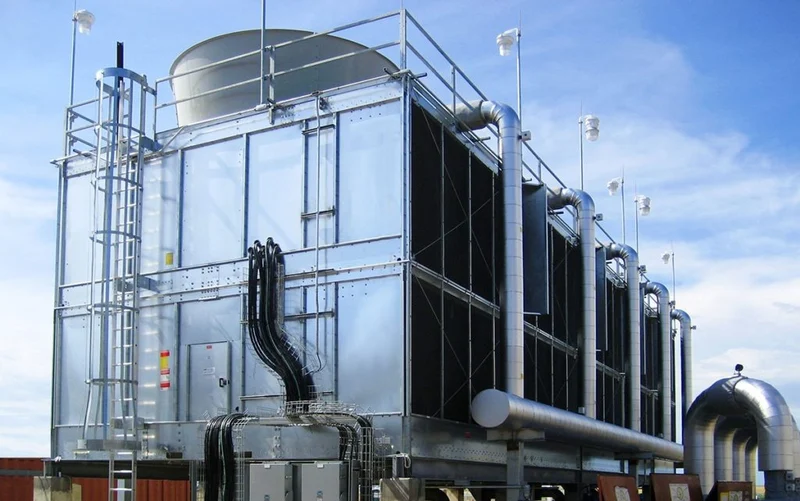How Mechanical Platforms Are Used In Commercial HVAC Systems?

In the pursuit of energy-efficient and sustainable building solutions, the integration of Mechanical Platforms into Commercial HVAC (Heating, Ventilation, and Air Conditioning) systems has become increasingly essential. These platforms serve as the backbone of HVAC systems, optimizing their performance while ensuring a comfortable and healthy indoor environment. In this article, we’ll explore how Mechanical Platforms are utilised in Commercial HVAC systems to enhance their efficiency and functionality.
Structural Support And Space Optimization
Mechanical Platforms are primarily designed to provide structural support for the various components of a Commercial HVAC system. These platforms are often custom-built to accommodate equipment such as air handlers, chillers, and condensing units. By elevating these components off the ground, Mechanical Platforms not only protect them from potential flooding but also free up valuable floor space within the building. This optimization of space is particularly crucial in commercial settings where every square meter counts.
Improved Accessibility For Maintenance
HVAC systems need regular maintenance to ensure their longevity and efficiency. A mechanical platform plays a vital role in simplifying this process by providing easy access to the system’s components. Maintenance personnel can safely and efficiently service the equipment without the need for extensive scaffolding or other cumbersome access solutions. This accessibility reduces downtime and maintenance costs, keeping the HVAC system running smoothly.
Enhanced Airflow Management
Proper airflow management is a key factor in maintaining indoor air quality and comfort. Mechanical Platforms are strategically designed to facilitate efficient airflow within the HVAC system. They help ensure that air handlers and ductwork are optimally positioned to distribute conditioned air evenly throughout the building. This balanced airflow contributes to consistent temperature control and minimizes hot or cold spots within the space.
Noise And Vibration Control
Noise and vibration can be significant concerns in commercial buildings, especially in spaces where silence is essential, such as offices, hospitals, or educational institutions. Mechanical Platforms are equipped with vibration isolation mechanisms that help mitigate noise and vibrations generated by HVAC equipment. This feature is crucial for maintaining a peaceful and productive indoor environment, as well as preventing structural damage caused by excessive vibrations.
Safety And Compliance
Compliance with safety regulations is paramount in commercial building projects. Mechanical Platforms are engineered to meet stringent safety standards, ensuring the protection of both workers and the equipment itself. Additionally, these platforms often incorporate features such as guardrails, non-slip surfaces, and fire-resistant materials to enhance safety. Compliance with these standards not only reduces liability but also fosters a secure and healthy workplace.
Integration Of Advanced Technologies
The integration of advanced technologies has become a hallmark of modern Commercial HVAC systems. Mechanical Platforms are designed to accommodate these technologies seamlessly. For instance, the platforms can incorporate smart sensors and controls that monitor temperature, humidity, and air quality in real-time. This data allows for precise and efficient HVAC system management, resulting in energy savings and improved occupant comfort.
Sustainability And Energy Efficiency
In today’s environmentally conscious world, sustainability is a driving force behind HVAC system design. Mechanical Platforms play a crucial role in promoting sustainability by supporting energy-efficient HVAC equipment. The elevation of components on the platform allows for better heat dissipation, reducing the strain on cooling systems. Moreover, many Mechanical Platforms are constructed from eco-friendly materials that can be recycled at the end of their lifespan, aligning with sustainable building practices.
Conclusion
Mechanical Platforms are the unsung heroes of Commercial HVAC systems, providing structural support, efficiency, and safety while enabling the integration of advanced technologies. These platforms are indispensable in the modern commercial building landscape, where space optimization, energy efficiency, and occupant comfort are paramount concerns. As the focus on sustainable and environmentally friendly building solutions continues to grow, Mechanical Platforms will continue to develop and hold a pivotal role in the development of HVAC systems that are efficient, reliable, and environmentally responsible.